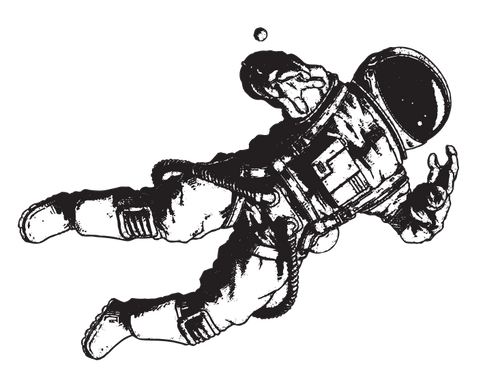Disclaimer - This article is for informational purposes only. In no way is it intended to provide legal advice. Always consult local laws and regulations to ensure legal compliance! For more information please visit our content policy located in our terms of service. Last updated 09/30/2023
With each passing year, the hemp industry witnesses the rise and focus on various cannabinoids. Lately, one such compound that has garnered significant attention is THCa. As its popularity continues to soar, both among casual users and scientific communities, a natural curiosity has emerged.
So, what's the buzz all about? And more crucially, as more consumers lean towards incorporating THCa into their daily routines, the burning question arises: What are the side effects of THCa? In this article, we'll embark on a journey to understand just that, shedding light on both the potential benefits and the precautions associated with this compound.
- A brief overview of THCa
- Side effects of THCa
- Safety considerations
- Try THCa today with OuterSpace CBD
A brief overview of THCa?
When we talk about hemp and cannabis, the term THC often dominates the conversation. However, before THC, there's THCa.
THCa and its place within the cannabinoid family.
Tetrahydrocannabinolic acid , or THCa, is a naturally occurring compound found in both hemp and cannabis plants. It's one of the many cannabinoids in these plants but stands out due to its unique properties and potential benefits. Unlike its popular cousin, THC, THCa is non-psychoactive in its raw form. However, that's not the whole story…
Before THC, there is THCA
Now, you might wonder, if THCa and THC are so closely related, how do they differ? The difference lies in a process called decarboxylation. When THCa is exposed to heat, such as when smoking or vaporizing, it loses a carboxyl group. This process transforms THCa into the well-known psychoactive compound, THC. Simply put, THCa becomes THC when it's heated, which is why raw hemp won't give you the "high" typically associated with cannabis, but smoking it sure can.
Side effects of THCa
As the interest in THCa continues to grow, it's crucial for consumers to understand the potential side effects. Just as with any compound or medication, understanding what one might expect is essential for safe and informed use.
- Drowsiness and Fatigue: While THCa itself might not induce drowsiness directly, its conversion to THC when heated can lead to feelings of tiredness and lethargy in some individuals. It's essential to be cautious if one plans to drive or operate machinery.
- Altered Perception and Euphoria: As THCa can convert into THC, the psychoactive sensations such as altered perception and feelings of euphoria associated with THC can also manifest. This might catch individuals off-guard, especially those who were not expecting a psychoactive experience.
- Dry Mouth and Increased Thirst: A commonly reported side effect of many cannabinoids, including THC, is xerostomia or dry mouth. When THCa is converted to THC, this side effect can emerge, leading to increased thirst.
- Accelerated Heart Rate: Another side effect derived from its conversion to THC, individuals might experience a faster heartbeat or palpitations. While usually not dangerous, it can be unsettling for some, especially those with pre-existing heart conditions.
- Coordination Issues: Upon its conversion to THC, there can be noticeable effects on motor skills and coordination. This underscores the importance of not engaging in activities that require fine motor skills after consuming products that might lead to the conversion of THCa to THC.
It's worth highlighting that in its raw form, and without undergoing decarboxylation, THCa has been studied for its potential therapeutic benefits like anti-inflammatory properties. Current findings suggest that it might offer these advantages without many of the downsides commonly associated with THC.
Safety considerations
Safety should always be a priority when trying out any new product, especially those that can alter our cognitive or physical state. With the rise of THCa in the hemp industry, it's imperative to have a clear understanding of the dos and don'ts associated with its consumption.
- Importance of dosage and starting with small amounts: One of the most crucial aspects of safely enjoying THCa, like with many cannabinoids, is appropriate dosage. Due to the potential for THCa to convert into THC, it's advisable to start with a small amount and monitor any reactions. Starting low allows individuals to gauge how they react, make informed decisions on dosage adjustments, and avoid any unwanted side effects. For some general guidance on dosage, check out “How much THC is in a joint? ”
- What might affect one person differently than another : The effects of THCa, especially when it converts to THC, can vary widely from person to person. Factors such as body weight, metabolism, tolerance, and even genetics can play a role in how one experiences its effects. For instance, someone with a faster metabolism might process THCa more quickly, resulting in a different experience than someone with a slower metabolic rate. This underscores the importance of personalized approaches and understanding that what works for one person might not work for another
Try THCA today with OuterSpace CBD
THCa is a remarkable cannabinoid found in both hemp and cannabis plants. On its own, it doesn't induce that signature 'high'. However, introducing heat changes the narrative, turning it into THC. While certain side effects stem from this conversion, THCa also offers its unique advantages. If you're left pondering, "Does THCa get you high?" the answer is yes, especially when smoked. Skeptical? Why not sample one of our top-tier indoor exotic THCa hemp flower strains and experience it firsthand?
The content presented on this website is strictly for informational purposes and should not be interpreted as legal advice or as any definitive statement regarding the status of current laws. While the information and materials on this site aim to be accurate and current, state-specific laws are constantly evolving, and there may be occasional discrepancies. Prior to making any purchase or taking any actions based on the content here, we highly recommend consulting with a legal professional in your jurisdiction to confirm the status of the laws pertinent to our products. For a comprehensive legal disclaimer, please read our Content Policy located in our terms of service.


